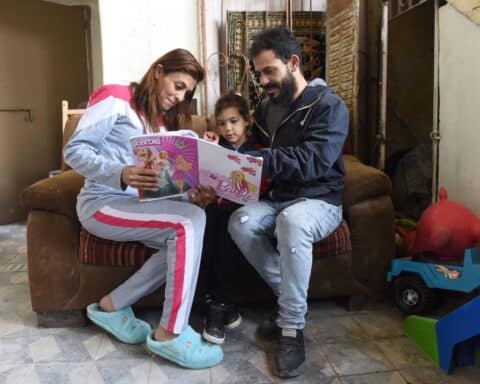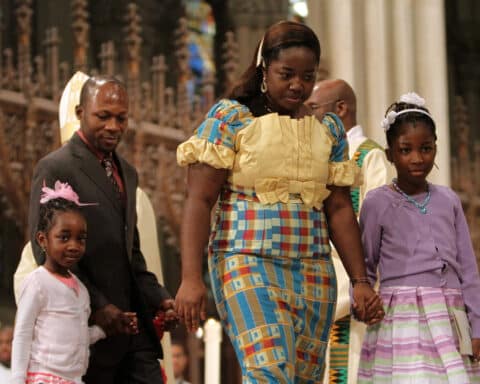My husband and I often get asked if we’re done having kids, especially when we’re out with our wonderfully conspicuous four young children. When we respond that no, we aren’t “done,” some tell us we’re crazy, but most people want to know more. To some, we are akin to a circus act, but others are wondering if a family (or growing the one they already have) is possible for them, too.
A recent Pew Research study showed that 44% of adults ages 18-49 don’t intend to have children. It’s a startling percentage. Roughly half of those asked cite lack of interest as their main reason for not having children. The other half cite practical points such as medical, financial or the lack of a partner as their main reason. I’ve met men and women of both groups over the years, and my heart breaks for them all.
To those in the first group, who aren’t interested in having children, I want to say that while there are certainly a lot of challenges and sacrifices that come with having children, I cannot imagine life without mine.
Each one of our children is a blessing. Each one was created to fill a place in this world that no one else can. Their laughter, their cries, their talents, their struggles — I learn more from them each day than I ever did in school. They have changed me, moved me, matured me. They have made me a better woman, a better daughter of God. I will be grateful forever for the gift of my children. I will be grateful forever for being their mom.
The more children we have had, the easier we have found it to have more. Each subsequent child has changed our family dynamic in unexpected and beautiful ways. As our children grow in age and number, my husband and I are more capable of seeing past the demands and difficulties of a rough season. Instead, we see the individuals we have had the privilege of co-creating with God, and we wonder who he might want to create next.
To those in the second group — the ones who might want kids if they thought it was realistic — I am sorry beyond words. You know that children are worth it, but you worry that there is not enough — not enough health, not enough money, not enough support. And you aren’t wrong. Without those things, you cannot raise a family well. In fact, my own family would not survive without them.
My husband and I are our children’s parents, but we are by no means raising them alone. We are blessed with safety nets and a support system that many don’t have, the most important of which is a tribe of family and friends who value life as much as we do. From congratulations at each pregnancy announcement to actual boots-on-the-ground support of our family’s growth, we are incredibly blessed.
As just one example out of many, when our eldest was born, my teaching income was necessary. My husband’s family stepped up to watch our daughter while I worked. She was doted on by her aunt, grandma, great-grandma and even my sister-in-law’s religious order, as each took their daily turn with her. Without them, we would have been like 63% of working parents here in the U.S. that cannot afford the full price of child care. Instead, our daughter developed important relationships and received love and care at no cost. I can’t imagine how hard it must be to raise children without that scaffolding, but in our fractured society, that’s just what many would-be parents are facing.
When it comes to having and raising children, the Catholic Church asks us to exercise both prudence and generosity. And while she lays out several points worth considering, the actual discernment of whether to have children (and how many) is left to the couple. In my own marriage, we have seasons of life where prudence has taken precedence, and others where we have been able to be more generous.
It seems to me that in the data from the Pew Research study, we see two groups of people who do not intend to have kids — those who are struggling with generosity (the uninterested group) and those who are exercising prudence to the best of their ability and understanding (those citing need-based reasons for not having kids). The Catholic Church can be of service to them both.
The first group needs our witness to the value of each individual child and the immensity of the blessings that children bring into the lives of their parents. They need those of us with large families to not shy away from the questions we receive, to share the joy that is having kids unapologetically.
The second group could hugely benefit from a Catholic Church that passionately proclaimed her teachings on the pro-life issues that families today are facing. We should be talking more about living wages, paid family leave and affordable health insurance, because having a large family is beautiful and well worth the sacrifices, but sometimes a desire isn’t enough to overcome the realities that families face.
Both groups need our prayers if the numbers are going to shift at all in the coming years.
Colleen Pressprich is the author of “Marian Consecration for Families with Young Children” (OSV, $18.95). She writes from Michigan.





